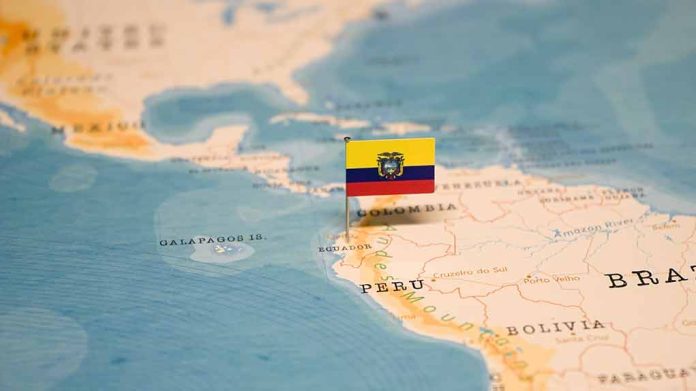
Ecuador seeks U.S. military aid to counter drug trafficking and illegal fishing threats.
Key Takeaways
- Ecuador’s President Noboa met with U.S. President Donald Trump to discuss military help against drug cartels.
- A constitutional reform to allow foreign military bases is currently underway in Ecuador.
- Noboa emphasizes international collaboration to combat narcoterrorism, including involvement from U.S., European, and Brazilian forces.
- Despite criticism, Noboa continues a hardline stance against gangs, asserting the need for military cooperation.
- Noboa and Trump discussed economic collaborations along with military aid.
Noboa’s Call for Military Aid
Ecuador’s President Daniel Noboa recently met with U.S. President Donald Trump at Mar-a-Lago. The agenda was to discuss military aid against drug trafficking and illegal fishing, significant challenges for Ecuador. Noboa’s call for military collaboration comes amid Ecuador’s problematic rise in drug-related violence. Violence surged due to gangs controlling trafficking routes, with the majority of cocaine smuggled through its ports.
The partnership seeks to address crime through enhanced U.S.-Ecuador military ties. In 2023, both nations signed military cooperation agreements, ratified by Noboa in 2024. Noboa wants Trump to classify Ecuadorian gangs as terrorist groups, a strategic move to undermine gang power. He also focused on a broader crackdown, militarizing streets and prisons, though facing criticisms for aggressive tactics.
Legal and Economic Considerations
Ecuador’s 2008 constitution currently prohibits foreign military bases which Noboa seeks to amend. He actively advocates for legislation amendments that permit external military presence, enhancing Ecuador’s defense capabilities while complying with local laws.
Noboa’s talks with Trump’s administration include economic and migratory issues. He affirms the administration’s willingness to receive Ecuadorian migrants back from the U.S., offering them job training and a minimum wage.
International Alliances and Public Sentiment
Noboa remains firm in calling for an international coalition against narcoterrorism, seeking support from the U.S., Europe, and Brazil. The construction of a new naval facility in Manta is underway, a preparation for likely U.S. military involvement. Some critics argue Noboa’s heavy-handed strategy hasn’t delivered promised results, given the unfulfilled campaign assurances and record killings.
“We need to have more soldiers to fight this war,” said Noboa in an interview.
Despite harsh criticism, Noboa insists a transnational security policy is necessary. Many agree this approach is essential in an era where narco-terrorism spans borders, affecting nations globally.





